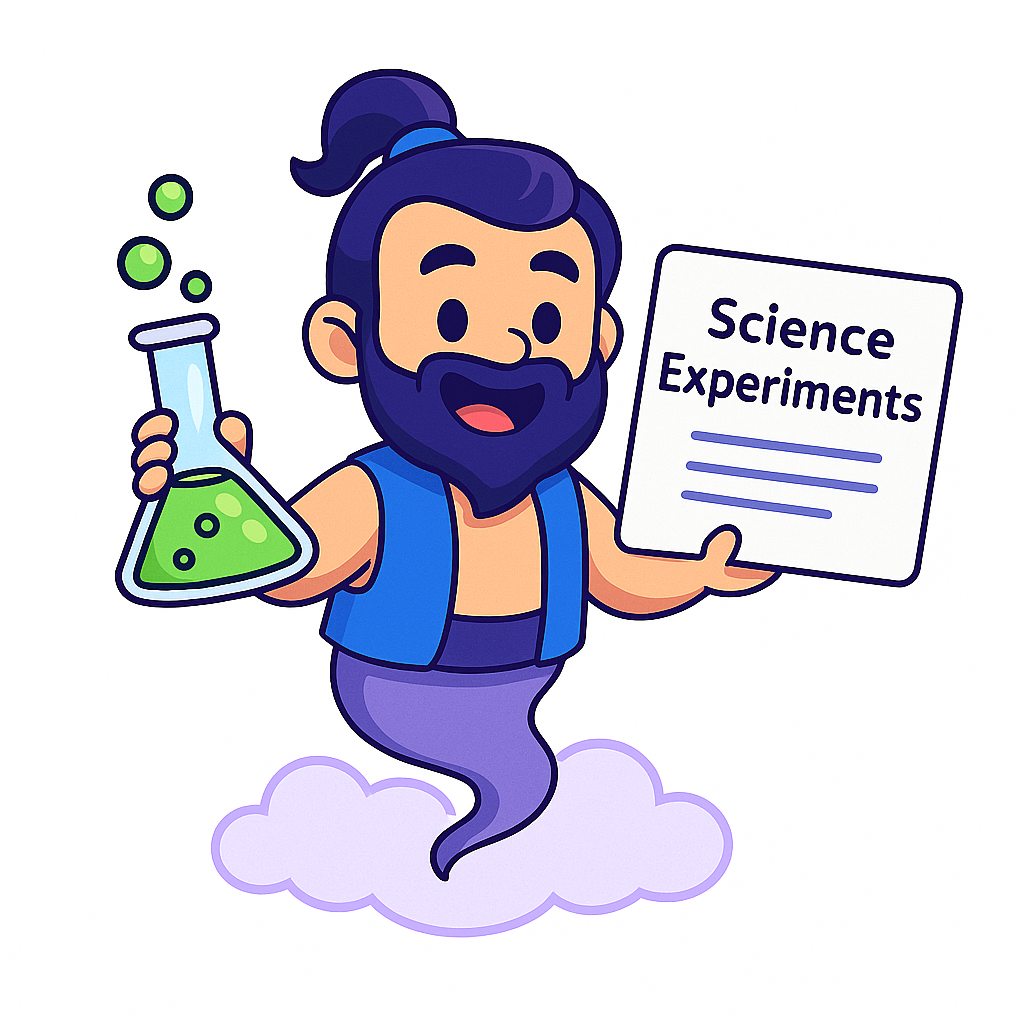 Egg Floatation in Different Liquids:
Egg Floatation in Different Liquids:
Easy Science Experiment on Density and Buoyancy
Easy Science Experiment on Density and Buoyancy
Why do some things float while others sink? Discover the science of density and buoyancy with this hands-on egg floatation experiment! Designed for grades 3–6 but fun for all ages, you’ll see how dissolving salt or using different liquids changes whether an egg floats or sinks. This activity is easy, safe, and uses materials you already have at home or in the classroom. Read on for step-by-step instructions, teaching tips, scientific explanations, and a printable worksheet!
Experiment Details
- Grade Level: 3rd–6th Grade (adaptable for K–8)
- Key Topics: Density, Buoyancy, Solubility
- Estimated Time: 20–30 minutes
- Mess Factor: Low
Purpose: To investigate how the density of a liquid affects whether an egg sinks or floats, and to observe how adding substances like salt or sugar changes water’s density.
Hypothesis: If an egg is placed in liquids with different densities, then it will float in the denser liquids and sink in the less dense liquids.
What You’ll Need
- 1 raw egg
- 3 clear cups or glasses (about 8 oz each)
- 1 cup plain water
- 1 cup water mixed with 1/4 cup salt
- 1 cup clear soda (like lemon-lime or club soda)
- Spoon for stirring
- Paper and pencil for notes
- Towel (optional, for spills)
Step-by-Step Instructions
- 1. Label your three cups: “Plain Water,” “Salt Water,” and “Soda.”
- 2. Pour 1 cup of plain tap water into the first cup.
- 3. In the second cup, mix 1 cup of water with 1/4 cup salt. Stir until the salt is fully dissolved.
- 4. Pour 1 cup of clear soda into the third cup.
- 5. Gently place the raw egg into the plain water cup. Watch what happens!
- 6. Remove the egg and place it in the salt water. Observe and record what happens.
- 7. Finally, place the egg in the soda and observe the result.
- 8. Compare what you saw in each liquid. Which liquid made the egg float? Which made it sink?
Results & Scientific Explanation
In plain water, the egg sinks because it is denser than the water. When you dissolve salt in water, it increases the water’s density. If the water becomes denser than the egg, the egg will float. In most sodas, the egg still sinks because the soda’s density is only a little higher than plain water. This experiment shows how density and buoyancy work—objects will float if they are less dense than the liquid, and sink if they are more dense.
- Plain water: Egg sinks (egg is denser than water)
- Salt water: Egg floats (salt makes water denser than egg)
- Soda: Usually sinks (soda’s density is close to water)
What Is Density?
Density is how much mass is packed into a given volume. Water has a certain density, and adding salt increases that density. If you’ve ever floated in the ocean and noticed it’s easier than in a swimming pool, that’s because salt water is denser—just like in this experiment!
Why Does This Matter?
Understanding density and buoyancy helps explain many things in everyday life, from why ships float to why some fruits float and others sink. Scientists, engineers, and even chefs use the concept of density all the time!
Learning Objectives
- Learn about density and buoyancy
- Practice making hypotheses and recording observations
- Observe how different liquids affect the floating of objects
- Understand how dissolved substances (like salt) change liquid properties
Teacher & Parent Tips
- Be gentle when moving the egg between cups to avoid cracks.
- Have students predict what will happen before each test for extra critical thinking.
- Use clear containers for easy observation.
- Discuss real-life density examples: Why is it easier to float in the ocean? Why do some objects float and others don’t?
- Try variations—use sugar instead of salt, or test different sodas and juices for extra discovery!
Standards Alignment
NGSS 5-PS1-3: Make observations and measurements to identify materials based on their properties.
NGSS 3-5-ETS1-1: Define a simple problem reflecting a need or a want that includes criteria for success and constraints on materials, time, or cost.
CCSS.ELA-LITERACY.RI.5.3: Explain the relationships or interactions between two or more individuals, events, ideas, or concepts in a scientific text.
Printable Worksheet
Want a ready-to-use printable version for your class or homeschool?
Frequently Asked Questions
Adding salt increases water’s density. When the water becomes denser than the egg, the egg floats. In plain water, the egg is denser, so it sinks.
Yes, sugar also increases water’s density, but not as much as salt does. Try it for yourself and see what happens!
Try grapes, small balls, or other fruits! Whether something floats or sinks depends on its density compared to the liquid.
Ocean water is salty and therefore denser than pool or freshwater. This increased density helps people float more easily.
Related Experiments
Share Your Results!
Did you try this experiment? Share your photos, results, or questions below!
⭐ What Parents & Teachers Are Saying
Recent Feedback
There are no reviews yet. Be the first one to write one.

